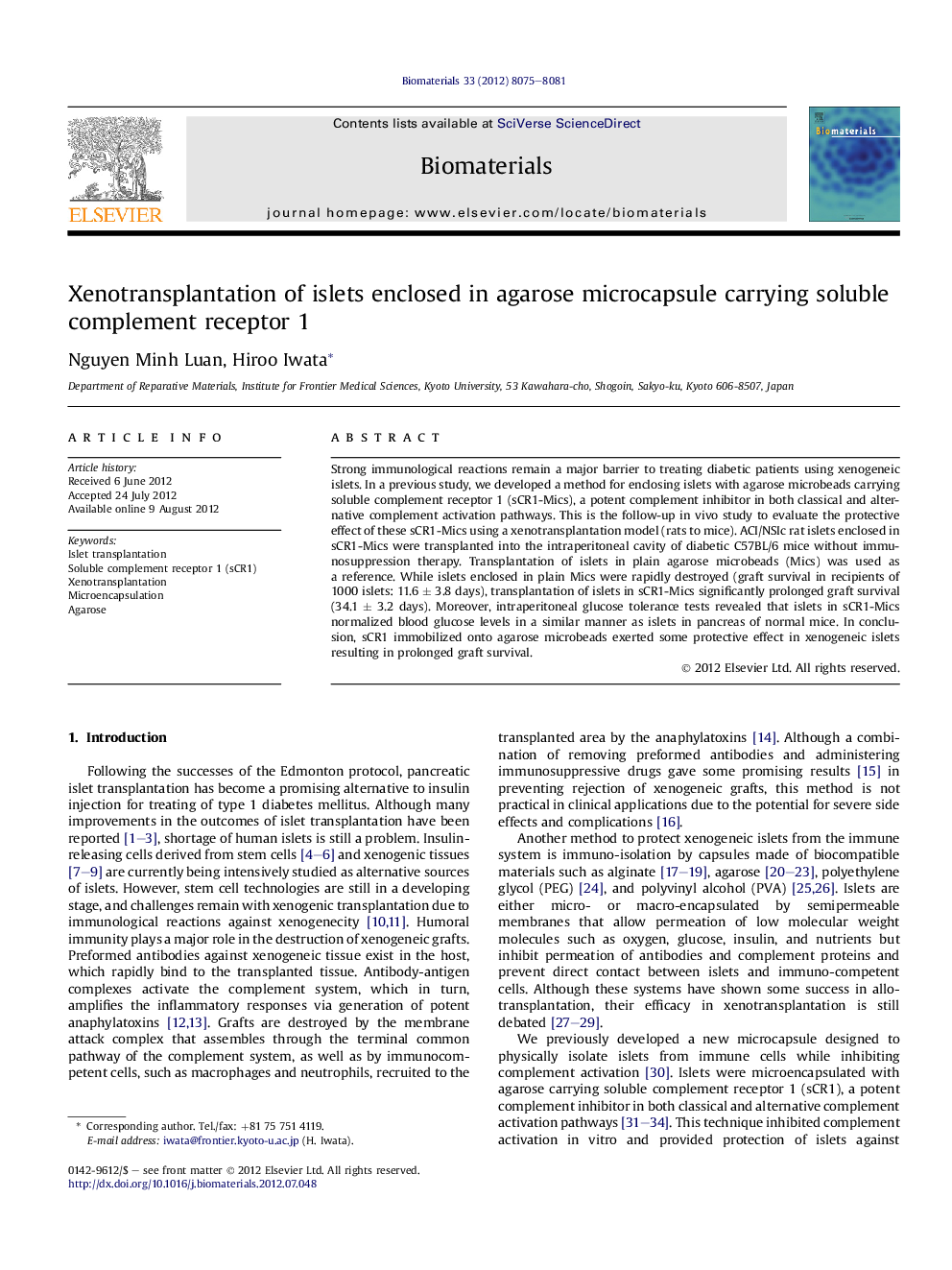| Article ID | Journal | Published Year | Pages | File Type |
|---|---|---|---|---|
| 10229097 | Biomaterials | 2012 | 7 Pages |
Abstract
Strong immunological reactions remain a major barrier to treating diabetic patients using xenogeneic islets. In a previous study, we developed a method for enclosing islets with agarose microbeads carrying soluble complement receptor 1 (sCR1-Mics), a potent complement inhibitor in both classical and alternative complement activation pathways. This is the follow-up in vivo study to evaluate the protective effect of these sCR1-Mics using a xenotransplantation model (rats to mice). ACI/NSIc rat islets enclosed in sCR1-Mics were transplanted into the intraperitoneal cavity of diabetic C57BL/6 mice without immunosuppression therapy. Transplantation of islets in plain agarose microbeads (Mics) was used as a reference. While islets enclosed in plain Mics were rapidly destroyed (graft survival in recipients of 1000 islets: 11.6 ± 3.8 days), transplantation of islets in sCR1-Mics significantly prolonged graft survival (34.1 ± 3.2 days). Moreover, intraperitoneal glucose tolerance tests revealed that islets in sCR1-Mics normalized blood glucose levels in a similar manner as islets in pancreas of normal mice. In conclusion, sCR1 immobilized onto agarose microbeads exerted some protective effect in xenogeneic islets resulting in prolonged graft survival.
Related Topics
Physical Sciences and Engineering
Chemical Engineering
Bioengineering
Authors
Nguyen Minh Luan, Hiroo Iwata,
